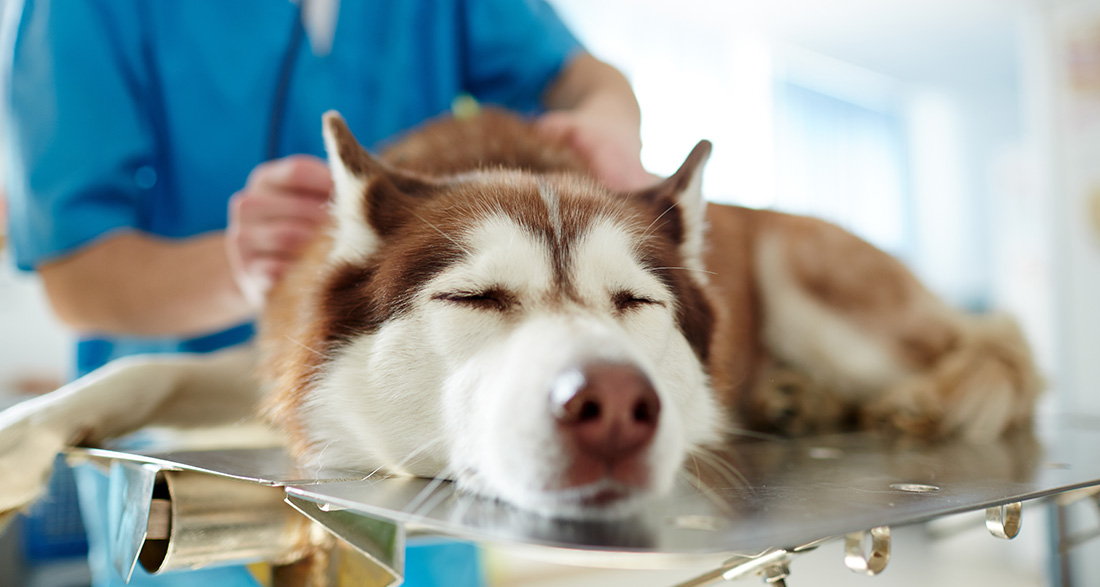Ingesting rat poison leads to reduced blood clotting, causing internal bleeding, and can result in death for dogs and cats.
Effects of Rat Poison on Dogs and Cats
The most commonly used rat poisons in the United States contain coumarin derivatives. These substances reduce Vitamin K1 in the body, which is necessary for producing vital blood clotting factors.
First-generation coumarin derivatives have a relatively short duration of about one to two weeks, while second-generation coumarins have a very long-lasting effect, ranging from three to six weeks, and in rare cases, even longer.
How Rat Poison Affects Dogs
After a dog has ingested rat poison, 90% of the active substance is absorbed from the gastrointestinal tract. This absorption into the bloodstream takes between 1-12 hours. Rat poison concentrates in the liver of poisoned dogs, where it exerts its devastating effects.
The lethal dose of rat poison depends on the contained active ingredient, which is indicated on the packaging in grams per kilogram of the product or as a percentage. Therefore, if possible, have all the necessary data ready for veterinary treatment.
The amount of rat poison that is lethal for a dog depends on various factors. In any case, immediate veterinary treatment is necessary when rat poison is ingested!
Symptoms of Rat Poisoning in Dogs and Cats
It takes two to three days, sometimes even one to two weeks, for the first signs of rat poisoning to appear. If you, as a pet owner, did not witness the ingestion of rat poison (which is often the case), a veterinarian should be consulted immediately at the first signs.
Initial symptoms of rat poisoning include:
- Coughing
- Nosebleeds
- Bleeding of the oral mucosa
- Bruising
- Weakness
- Lethargy
In the later course of rat poisoning in dogs and cats, additional symptoms may appear:
- Signs of shock (rapid heart rate, pale mucous membranes, low blood pressure)
- Coughing with bloody sputum
- Difficulty breathing
- Bruising in the joint with lameness
- Bruising of the skin
- Bleeding from body openings (nosebleeds, bleeding from the eyes, anus, or vagina)
- Bloody urine
- Bleeding from the anus and bloody vomiting
Bloody vomiting and bloody diarrhea are more commonly part of acute hemorrhagic diarrhea syndrome (AHDS) in dogs and are not the first signs of rat poisoning. If these symptoms occur in connection with rat poison in dogs, they are part of a complex of symptoms described above.
How Dogs or Cats Get Poisoned by Rat Poison
Most poisonings with rat poison occur on the owner’s premises. Dogs are much more likely to get poisoned than cats, likely due to cats being somewhat less sensitive to the poison. If a dog or cat eats a poisoned mouse or rat, it can be sufficient for poisoning. However, rodents are much more sensitive than our dogs and cats, so poisoning through a poisoned mouse is extremely rare.
Can You Test a Dog for Rat Poisoning?
Direct testing for rat poison in dogs is not possible, but testing for typical consequences is. The reduction of certain coagulation values (especially the Quick value) provides clear indications of rat poison intake. The Quick value is extended 6-18 hours earlier than other coagulation values. If bleeding has already occurred, most coagulation values are usually extended, and diagnostic treatment must be initiated. Administering Vitamin K and subsequent improvement then confirm the diagnosis.
A blood test can be helpful in questionable cases. Reduced platelets (also called blood platelets) are possible.
A direct test for coumarin derivatives can be done from food, bait, blood, and liver. However, this test takes an extremely long time. Once initial symptoms appear, this test is no longer helpful.
Treatment for Rat Poisoning
Only a veterinarian can provide the necessary treatment for severe coagulation disorders. To stop acute bleeding and secure vital functions (respiration and circulation), a blood transfusion may be necessary. To treat the deficiency of Vitamin K, the vitamin is repeatedly administered. Treatment must last for three to six weeks.
After the dog has survived the acute phase, repeated blood tests must be conducted.
Because it is a life-threatening, rapidly progressing condition, treatment with homeopathic remedies or naturopathy is not advisable. However, they can support recovery after acute therapy.
First Aid for Dogs with Rat Poison Intake
If you observe your dog eating rat poison or suspect it, seek a veterinarian immediately. The veterinarian will induce vomiting in your dog to remove possible toxins from the stomach. After vomiting, activated charcoal can be administered additionally to reduce the absorption of remaining poison quantities. Administering charcoal alone is not a recommended treatment when observed intake has occurred, as it shows unreliable efficacy. Administering charcoal is no longer meaningful if signs of rat poison poisoning already exist.
Preventing Rat Poison Poisoning in Dogs
Do not allow your dog to access areas where rat poison is laid out. Always store poisons in a lockable cabinet. We have treated dogs that have obtained poison from open cabinets from several meters high.
Survival Chances in Rat Poison Poisoning in Dogs
If bleeding has already occurred, the dog can die at any time. If a dog survives the first 48 hours, its chances of survival greatly improve. The prolonged administration of Vitamin K, according to the treating veterinarian’s instructions, is essential for survival. About 83% of all poisoned dogs survive rat poison poisoning.
A fatal outcome usually occurs when bleeding cannot be stopped. Blood transfusions can be crucial for survival, but they also carry some risks, which is why we only transfuse fresh blood.
Late Consequences After Rat Poison Poisoning
Pregnant females can experience a miscarriage due to rat poison poisoning. Otherwise, there are no specific late consequences to expect.


